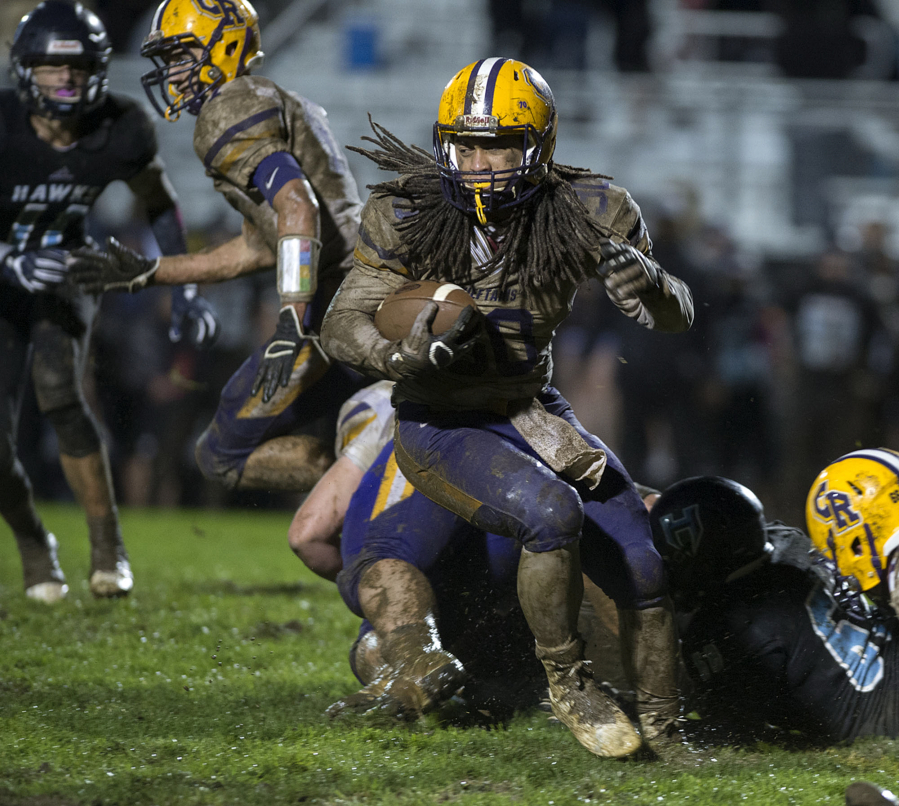Residents in the Hockinson School District voted down a capital project levy in February, and district officials want to know why.
The vote was about whether to replace Hockinson High School’s main athletic field with synthetic turf, and 59.35 percent of residents who voted went against the measure. The district, which sent out a survey on April 13 to get residents’ thoughts on the turf replacement, will accept responses through Friday. More information and the survey itself can be found at www.hocksd.org.
“We have to do something,” Hockinson Superintendent Sandra Yager said. “Our field is draining, but it’s such a wet area right here.”
Yager said it was the school board’s decision to go back to the public to get more information. Board officials wanted to know if the levy was rejected due to financial concerns or because residents don’t want a synthetic turf field.
“We had some people in the community who were very strongly in favor of it, and so we wanted to show respect for that viewpoint,” said Steve Nylund, chairman of the school board. “We also realized that other community members may have a different viewpoint. It seemed like a fair and reasonable way to ask the community to decide if this was something that was a good thing for the district to do.”
The levy proposal asked for $1.5 million split over six years, or $250,000 each year. The district’s projected levy rates were 19 cents per $1,000 of assessed home value for 2018, 18 cents per $1,000 for 2019 and 2020, 17 cents per $1,000 for 2021 and 2022 and 16 cents per $1,000 for 2023. That would have worked out to a maximum tax hit in 2018 of $57 for a house valued at $300,000, falling to $48 for the same-valued house in 23.
The survey asks if the levy measure was a fiscally responsible plan and if the responder is aware of issues with the athletic field due to rain. It also asks people to check off which reasons provided for not supporting the levy vote are most important. Those options include:
• “I believe our school district does not need synthetic turf.”
• “I believe our community’s taxes are too high already, and artificial turf is a luxury.”
• “I believe synthetic turf might cause more injuries to our athletes than natural grass fields.”
• “I believe that if members of the district want turf, they should raise funds to purchase it.”
Yager said the options came from real responses from the community.
“We try to be very even, making sure we’re just asking the questions so we have clarity,” she said. “Obviously, a lot of people said no.”
Yager said the district doesn’t want to move in a direction that residents don’t support, which was a big reason for the survey.
Nylund said he heard from residents who had concerns about the safety of the turf — either that playing on it would cause more injuries or theories spread around that playing on synthetic turf can cause cancer. An assistant soccer coach at the University of Washington compiled a list of soccer players who developed blood cancers around the same time they played on synthetic turf.
A Washington State Department of Health report based on the concern did not find increased cancer among the soccer players compared to what would be expected based on the rates of cancer among Washington residents of the same ages.
“Based on what we know today, the Washington State Department of Health recommends that people who enjoy soccer continue to play regardless of the type of field surface,” the report states.
“We know that crumb rubber is made from tires that contain chemicals that have been shown to cause cancer. However, what is critical to consider are the routes of exposure and potential dose someone receives. The available research suggests exposures from crumb rubber are very low and will not cause cancer among soccer players.”
The Hockinson survey asks residents what the district should do about the field, giving the options of: find a way to pay for it using grants or fundraising, run another capital levy vote, continue to play on it as is or replace the field’s soil with sand, which is what the district did on new softball and soccer fields.
That would help the field drain better but would require more watering during the hotter months, Yager said. To do that at the main athletic field would cost around $700,000, which the district would look to raise through another bond or levy, according to the survey.
“Our board is doing a good thing,” Yager said. “They’re trying to really represent their community and listen to understand how to continue to improve our facilities, and do it in a way our community can support. Their voice is important.”




